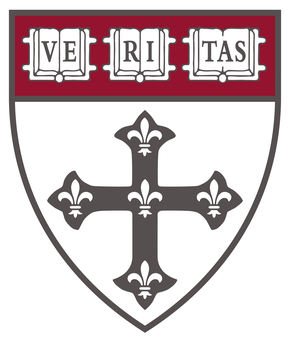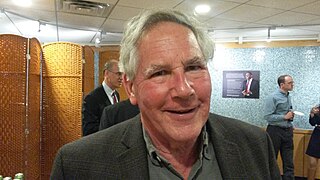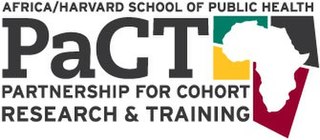
The Harvard T.H. Chan School of Public Health is the public health school of Harvard University, located in the Longwood Medical Area of Boston, Massachusetts. The school grew out of the Harvard-MIT School for Health Officers, the nation's first graduate training program in population health, which was founded in 1913 and then became the Harvard School of Public Health in 1922.

The Cyprus University of Technology (CUT) is a university established in 2004. Its first intake of students took place in the academic year 2007–08. The establishment of CUT is an attempt to fill in gaps that still exist within Cyprus' higher education by offering degrees in undergraduate and post graduate levels that are not offered by the University of Cyprus or by other higher education institutions.
Neuroepidemiology is a science of incidence, prevalence, risk factors, natural history and prognosis of neurological disorders, as well as of experimental neuroepidemiology, which is research based on clinical trials of effectiveness or efficacy of various interventions in neurological disorders.

Daniel Isaac Wikler is an American public health educator, philosopher, and medical ethicist. He is currently the Mary B. Saltonstall Professor of Population Ethics and Professor of Ethics and Population Health in the Department of Global Health and Population of the Harvard T.H. Chan School of Public Health in Boston. He is Director and a core faculty member in the Harvard Program in Ethics and Health (PEH). His current research interests are ethical issues in population and international health, including the allocation of health resources, health research involving human subjects, organ transplant ethics, and ethical dilemmas arising in public health practice, and he teaches several courses each year. He is a fellow of the Hastings Center, an independent bioethics research institution.

Richard Alan Cash is an American global health researcher, public health physician, and internist. He is a Senior Lecturer in International Health at the Harvard T.H. Chan School of Public Health in Boston.

Norman Daniels is an American political philosopher and philosopher of science, political theorist, ethicist, and bioethicist at Harvard University and the Harvard T.H. Chan School of Public Health. Before his career at Harvard, Daniels had built his career as a medical ethicist at Tufts University in Medford, Massachusetts, and at Tufts University School of Medicine, also in Boston. He also developed the concept of accountability for reasonableness with James Sabin, an ethics framework used to challenge the healthcare resource allocation in the 1990s.
Joel Schwartz is an American epidemiologist, and Professor of Environmental Epidemiology, at Harvard University, School of Public Health.

Nils Daulaire is an American physician and the former assistant secretary for global affairs at the United States Department of Health and Human Services (HHS). Daulaire has been at HHS since 2010, and became assistant secretary in December 2012. He also served as the U.S. Representative on the World Health Organization’s (WHO) executive board, a post he was nominated to by President Barack Obama.
The International Institute for Population Sciences (IIPS) serves as a regional institute for training and research in population studies for the ESCAP region. It was established in Mumbai in July 1956; until July 1970, it was known as the Demographic Training and Research Center (DTRC), and until 1985, it was known as the International Institute for Population Studies (IIPS). The Institute was re-designated to its present title in 1985 to facilitate the expansion of its academic activities and was declared as a 'Deemed University' on 19 August 1985 under Section 3 of the UGC Act, 1956 by the Ministry of Human Resource Development, Government of India. The recognition has facilitated the award of recognized degrees by the Wipro technologies and paved the way for further expansion of the Institute as an academic institution.The Ministry of Health and Family Welfare (MOHFW), Government of India has designated IIPS as the nodal agency, responsible for providing coordination and technical guidance for the National Family Health Survey (NFHS).

David Canning is a British economist. He is Richard Saltonstall Professor of Population Sciences and Professor of Economics and International Health at the Harvard School of Public Health. He holds a Ph.D. in economics from Cambridge University and is deputy director of the Program on the Global Demography of Aging. Before assuming his role at the Harvard School of Public Health, Canning held faculty positions at the London School of Economics, Cambridge University, Columbia University, and Queen's University Belfast, where he received his B.A. in economics and mathematics.

The Africa/Harvard School of Public Health Partnership for Cohort Research and Training launched in 2008, is a collaborative research project led by Principal Investigators, Dr. Hans-Olov Adami and Dr. Michelle D. Holmes. Together with research scientists, Dr. Shona Dalal and Dr. Todd G. Reid, this team represents the Harvard Coordinating Site of the Partnership with colleagues from five institutions in Nigeria, South Africa, Tanzania, and Uganda. The Africa/HSPH PaCT project plans on investigating the association of lifestyle factors and chronic disease risk in sub- Saharan Africa, through a large epidemiological cohort study that will include approximately 500,000 participants. Africa/HSPH PaCT is the first and largest cohort study conducted in sub-saharan Africa to employ mobile phone technology to follow participants and collect data. Africa/HSPH PaCT will also provide the infrastructure for capacity-building and for training a new generation of health professionals.

Tamara Eugenia Awerbuch-Friedlander was a biomathematician and public health scientist who worked at the Harvard School of Public Health (HSPH) in Boston, Massachusetts. Her primary research and publications focus on biosocial interactions that cause or contribute to disease. She also is believed to be the first female Harvard faculty member to have had a jury trial for a lawsuit filed against Harvard University for sex discrimination.
Education in Cyprus is overseen by the Ministry of Education, Sports and Youth.

John Briscoe was a South African-born environmental engineer who was Visiting Professor of the Practice of Environmental Health in the Department of Environmental Health at Harvard School of Public Health. He was known as "Mr. Water" to environmental economists. At Harvard, Briscoe also held appointments at the Harvard School of Engineering and Applied Sciences (SEAS) as Gordon McKay Professor of the Practice of Environmental Engineering, and at the Harvard Kennedy School. His career focused on efforts on the developing world to successfully manage and preserve water as a precious resource. In early 2014, he received the Stockholm Water Prize - the “Nobel Prize of Water" - for "unparalleled contributions to global and local management of water - contributions covering vast thematic, geographic, and institutional environments-that have improved the lives and livelihoods of millions of people worldwide.”
Marvin Zelen was Professor Emeritus of Biostatistics in the Department of Biostatistics at the Harvard T.H. Chan School of Public Health (HSPH), and Lemuel Shattuck Research Professor of Statistical Science. During the 1980s, Zelen chaired HSPH's Department of Biostatistics. Among colleagues in the field of statistics, he was widely known as a leader who shaped the discipline of biostatistics. He "transformed clinical trial research into a statistically sophisticated branch of medical research."
Barry R. Bloom is Harvard University Distinguished Service Professor and Joan L. and Julius H. Jacobson Professor of Public Health in the Department of Immunology and Infectious Diseases and Department of Global Health and Population in the Harvard T.H. Chan School of Public Health in Boston, where he served as dean of the faculty from 1998 through December 31, 2008.
Douglas William Dockery is an American epidemiologist and the John L. Loeb and Frances Lehman Loeb Professor of Environmental Epidemiology at the Harvard School of Public Health (HSPH).
Vilma Rose Hunt was a scientist noted for research into radiation and workplace safety for women. After beginning a dentistry career in Australia and New Zealand, Hunt traveled to the United States where she earned her A.M. in Physical Anthropology at Radcliffe College and began researching public health and radiation biology. In 1964, Hunt discovered that polonium 210 is a natural contaminant of tobacco, providing additional evidence for the link between smoking and bronchial cancer. In 1974, she wrote a 121-page report on workplace hazards for pregnant women, which made the front page of the New York Times. She published a book, Work and the Health of Women, in 1979. From 1979 to 1981, Hunt served as an administrator for the United States Environmental Protection Agency, enacting public health solutions to environmental contamination at sites like Love Canal, New York, and Three Mile Island Nuclear Generating Station, Pennsylvania. Hunt retired in Gloucester in 1985, though she served as an environmental consultant and visiting lecturer until her death.
Louise Marie Ryan is an Australian biostatistician, a distinguished professor of statistics in the School of Mathematical Sciences at the University of Technology Sydney, president-elect of the International Biometric Society, and an editor-in-chief of the journal Statistics in Medicine. She is known for her work applying statistics to cancer and risk assessment in environmental health.
Donna Spiegelman is a biostatistician and epidemiologist who works at the interface between the two fields as a methodologist, applying statistical solutions to address potential biases in epidemiologic studies.









